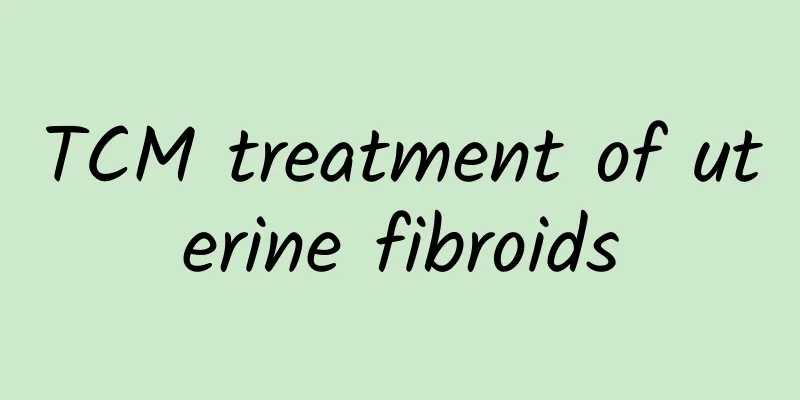What is the reason for the existence of uterine fibroids? What does the myometrium of uterine fibroids mean?

|
What causes uterine fibroids? What does the myometrium mean? These are questions many people have about uterine fibroids. In this article, we will answer these questions and explore the causes of uterine fibroids, the meaning of the myometrium, and some common symptoms and treatments. Let's answer the first question: What is the cause of uterine fibroids? Uterine fibroids are a benign tumor of the uterine muscles and the most common tumor of the female reproductive system. Although the specific cause is still unclear, the following factors are believed to be related to the occurrence of uterine fibroids: 1. Abnormal hormone levels: Estrogen and progesterone are key factors in the growth of uterine fibroids. If the estrogen level in the body is too high or unbalanced, it may promote the development of uterine fibroids. 2. Genetic factors: Studies have shown that genetic factors may be related to the occurrence of uterine fibroids. If someone in the family has uterine fibroids, the individual's risk of the disease may increase. 3. Aging: Studies have found that the incidence of uterine fibroids increases with age, which is related to changes in female hormone levels. Next, let's answer the second question: What does myometrium mean? The myometrium refers to a part of the uterine wall that is made up of smooth muscle tissue. The uterine wall can be divided into three layers: endometrium, myometrium, and exometrium. The myometrium refers to the middle layer of the uterine wall, which is made up of muscle tissue. Under normal circumstances, the thickness of the myometrium is relatively uniform, but in patients with uterine fibroids, one or more fibroids will form, and they usually grow in the myometrium. So, what are the symptoms of uterine fibroids? The clinical symptoms of uterine fibroids vary from person to person. Some patients may not have any symptoms, while others may have the following symptoms: 1. Menstrual abnormalities: Uterine fibroids may cause menstrual abnormalities such as excessive menstrual flow, prolonged menstruation or irregular menstruation. 2. Pelvic pain: Some patients may experience pelvic pain or discomfort, especially during menstruation or after sexual intercourse. 3. Compression symptoms: When uterine fibroids grow larger, they may compress other organs, causing compression symptoms such as difficulty urinating, constipation, and abdominal distension. Let's take a look at the treatments for uterine fibroids. If uterine fibroids do not cause symptoms or affect quality of life, they generally do not require treatment. However, if symptoms are severe or affect fertility and require treatment, the following treatments may be available: 1. Drug treatment: Drugs can help control the growth of uterine fibroids and reduce symptoms. Commonly used drugs include oral contraceptives, progesterone, etc. 2. Surgical treatment: Surgery is a common method for treating uterine fibroids. Depending on the patient's specific situation, surgical methods such as myomectomy and uterine fibroid embolization can be selected. 3. Interventional treatment: Interventional treatment is a non-surgical treatment method that uses a catheter inserted into the body to use drugs or physical methods to reduce or block the blood supply to uterine fibroids, thereby achieving the therapeutic effect. The cause of uterine fibroids may be related to abnormal hormone levels, genetic factors and aging. The myometrium of uterine fibroids refers to the middle layer of the uterine wall, which is composed of muscle tissue. If uterine fibroids cause symptoms or affect fertility, you can choose to treat them with medication, surgery or interventional treatment. Early detection and treatment of uterine fibroids can effectively relieve symptoms and improve quality of life. |
>>: What medicine should women take for uterine fibroids?
Recommend
What are the harms of uterine fibroids to the human body?
Uterine fibroids are a type of benign uterine tum...
What is the treatment process for bacterial vaginosis?
What is the treatment process of bacterial vagino...
Early care of vulvar leukoplakia
Early care of vulvar leukoplakia is very importan...
There are 6 points to pay attention to in the life of amenorrhea patients
Whether it is primary amenorrhea or secondary ame...
Get rid of obesity in children! 5 common sugary drink myths
Children's Day is approaching on April 4th. A...
What is the reason for excessive female flow? Women can take these 5 medicines for irregular menstruation
Women's menstrual volume, many people either ...
Eat small, frequent and balanced meals during pregnancy to nourish the fetus instead of gaining weight! Nutritionist: 3 tips for diet during pregnancy
Unbalanced nutrition and overnutrition lead to so...
What are the taboos for cervical warts?
In recent years, more and more people have been s...
The most important preventive measures for dysmenorrhea
The occurrence of dysmenorrhea is extremely harmf...
What causes ovulation bleeding?
The main causes of ovulation bleeding include exc...
Common symptoms of uterine fibroids in daily life
Uterine fibroids are a serious gynecological dise...
What are the early symptoms of bacterial vaginosis?
Bacterial vaginosis is one of the common gynecolo...
What medicine can make uterine fibroids disappear?
What medicine can make uterine fibroids disappear...
Do depressed women have a higher chance of developing multiple uterine fibroids? Common causes of multiple uterine fibroids
The common cause of uterine fibroids is a common ...
Comparison of three surgical methods for Bartholinitis
Expert introduction: There are many ways to treat...









